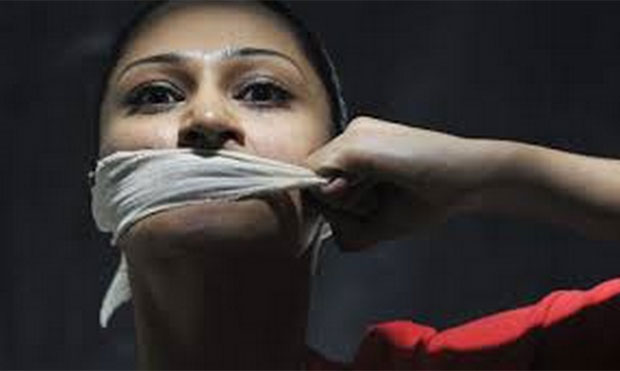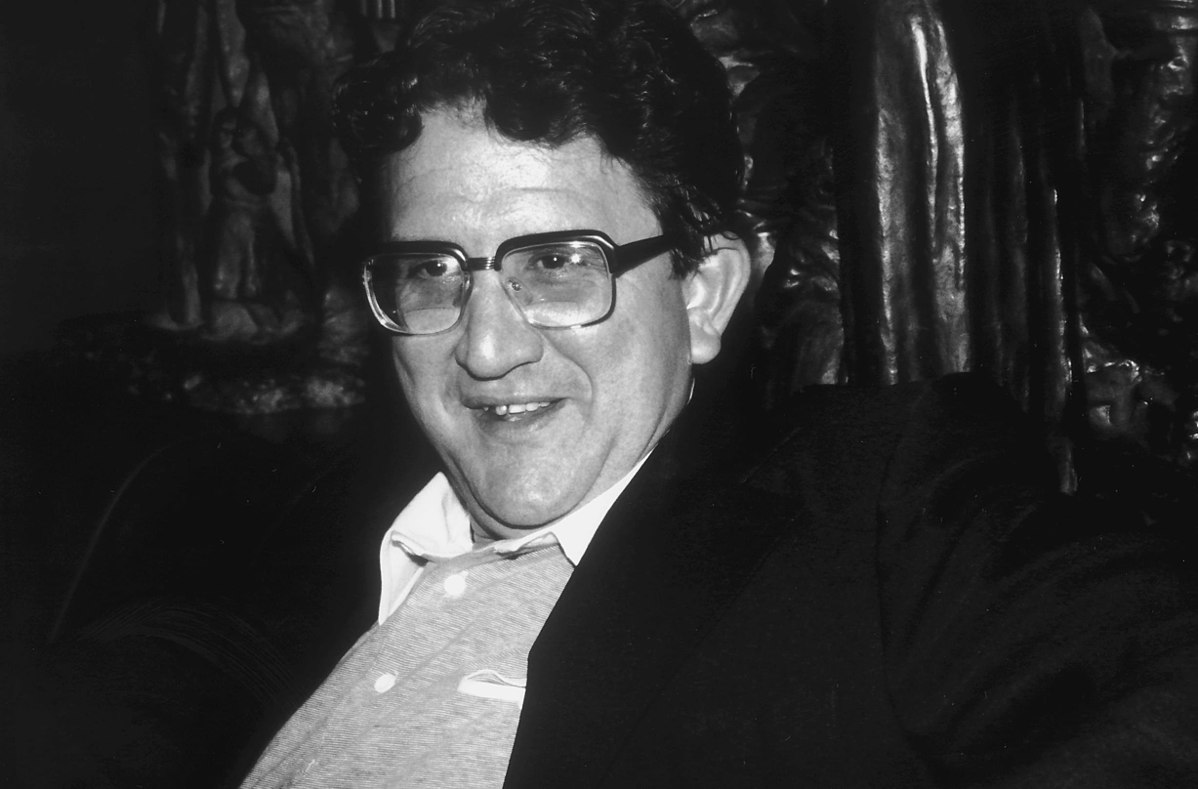By Ben Payne, Associate Director (Literary) Birmingham Rep
Background
In December of 2004, Birmingham Repertory Theatre staged the world premiere of Behzti, a new play by Gurpreet Kaur Bhatti, in the smaller of its two theatres, The Door, which is a space exclusively dedicated to the production and presentation of new plays. “Behzti” is a word in common usage amongst the Punjabi speaking community meaning “dishonour” or “shame”.
Behzti tells the story of Balbir, an elderly Punjabi Sikh woman and her daughter, Min, who has devoted her life to the care of sickly mother. Balbir’s determination to secure Min’s future leads her to make an uncharacteristic visit to the local Gurdwara (Sikh temple) to see the influential Mr. Sandhu whom she hopes can arrange a suitable marriage for Min. This is in defiance of the fact that their community have ostracised both of them because of the shame brought on the family by the suicide of Balbir’s husband, Tej, years before. When the real reason behind Tej’s demise is revealed, Mr Sandhu rapes Min, leading to a cover-up. Finally, Balbir and another of Mr Sandhu’s victims, Teetee, take revenge by murdering Mr Sandhu, leaving Min with one hope of a way out: Elvis, Balbir’s nurse, an Afro-Caribbean boy who has loved her all along …
Following a three-month dialogue with some leaders of the Sikh community in Birmingham about the production of the play, performances of Behzti met with mostly peaceful protests from its first night to the night of Saturday 18th December. That night, a small number of the 400 demonstrators turned violent, breaking into the theatre and smashing windows, doors and equipment. On Monday 20th December, the theatre decided to cancel the remaining 7 performances of the show when assurances were not given that these incidents would not be
repeated or escalated. The writer was forced to go into hiding and received police protection after death-threats were made against her and the controversy around both the play’s production and its cancellation ran in the media for several weeks afterwards.
Subsequently, Christian Voice, a religious pressure group explicitly used the example of the protests against Behzti as an example in its campaign to make the BBC cancel its television broadcast of the National Theatre’s production of Jerry Springer: The Opera. The BBC
received a record number of complaints about this broadcast but nevertheless went ahead with the transmission of the programme on 8th January.
Both events took place in the context of the progress of a proposed new law through the UK Parliament banning “incitement to religious hatred” which some British artists and campaigning groups believe could be used to prevent similarly controversial works of art from being seen or made in the future.
The following was written a couple of weeks after the events of Saturday 18th.
Behzti
Some writers have both the peculiar ability and the courage to tell stories that express what is being thought but not being said. Gurpreet’s first play Behsharam (Shameless) staged by the Rep in 2001 was about two Asian sisters, Sati and Jaspal, whose family’s attempts to appear outwardly normal render them quite abnormal. Behzti (Dishonour), her second, took an ambitious leap into something bigger and broader. Of course, she couldn’t have predicted how it would end up as a touchstone for issues bigger still. For Behzti is now not just a play, but a “controversy”, part of debates wider than could ever be encompassed by one piece of theatre: between artistic freedom and religious sensibilities; the proposed law against incitement to religious hatred; the status of women within minority communities; not least, whether a theatre should put artistic principle before the safety of its audiences and employees.
It is one of a number of ironies about the whole affair that had the demonstrations on the evening of Saturday 18th December remained peaceful and the play had continued for the final seven performances of its three-week run, none of this would have happened. This would have been one new play at a small studio theatre that attracted some protests. Those
who attempted to suppress it, a small minority violently only succeeded in giving the play’s wider implications further resonance.
Most of this controversy is actually undeserved because much of the way the play has been described is inaccurate. Unless you regard kissing as particularly depraved, the play does not “depict scenes of sexual violence and depravity” – a phrase, which, with minor variations, has been passed around unquestioned in the media since. The rapist in the play is not a priest. A rape and a murder are part of the plot but neither act is seen. This may offer little comfort to those who believe that to even imply such things could take place within the bounds of a place of worship is wrong. Nevertheless, it is important to be accurate if only to show that the playwright was never gratuitous. Only those who chose to drum up the play’s supposed offensiveness, not having seen or read it, could be accused of that.
There is a heavy onus on a playwright to be as responsible and balanced as any journalist. This weight may be greater still for non-white playwrights whose opportunities to see their plays staged remain limited. If your community has barely been seen on stage before, the pressure to show every perspective and point of view can be overwhelming. For another British Asian writer whose play the Rep produced, it partly contributed to a physical breakdown that required hospitalisation the night before rehearsals started. The fear of how your community might react to you – or your family – can act as a form of censorship far more subtle and efficient than smashing up a theatre – simply because the play never gets written in the first place. But maybe smashing up a theatre will do. For where then do writers confront their fears? Where do those fears actually become the point where they start writing?
For Gurpreet, one starting point is satire and, although satirists are comics, they operate from a position of moral outrage, no matter how heavily disguised in humour this is. The second scene of Behzti starts with two ladies of the Gurdwara, Polly Dhodar and Teetee Parmar, rifling the temple shoe-racks for designer labels. Perhaps in a community based on principles of equality and modesty, these abuses seem more glaring. Perhaps too the critique of the gap between principles and practice is more penetrating. But just because a play suggests bad things can happen in a sacred place, does not make it an irreligious play. And just because a writer shows characters behaving immorally, does not make it immoral. On the contrary, Behzti is a very moral; very angry that explores the reasons why some people don’t live up to their principles. And here is another irony: the anger of the writer and the anger of the protestors is, in fact, the same. They are angry about the same abuses. It’s just that she chose to express her anger in a play, whereas they chose to direct their anger at her.
Whilst being a satirist, she also shows huge compassion for her characters. Mr Sandhu, the Chairman of the Gurdwara’s Renovation Committee is a rapist. But he is also a man who senses that his entire life has been wasted. As he tells Min, the heroine:-
“After a while we get used to the disappointment. We don’t even have to live with it because we pass our failures on to you, our children. And then it becomes your problem …”
This combination of satire and empathy can be unsettling. However, perhaps it also communicates a peculiar duality of experience that resonates for many of those audience members who have packed in to see either Behsharam or Behzthi, or both : a world where Qaawalis and the songs of Karen Carpenter collide; where the outcast can reveal huge resources of spirit; where the leaders and fathers you are supposed to look up to can sometimes let you down; where nothing, in fact, is quite what it might want to appear to be …
Admittedly then, this was never a story that was going to have those leaders jumping for joy. But that’s all it is – a story. It cannot represent an entire faith or community even if that was its aim. Yet so much of the debate (where it has actually been about the play at all) has been about representations, images and settings, rather than what its story might tell us.
Was the theatre wrong to involve itself in any kind of dialogue with representatives of the Sikh community in the lead-up to the production? Would the outcome have been any different either way? Whatever the case, it’s important to stress what the purpose of that dialogue was. For the theatre, it was about being transparent about the play, the issues that it raised and to ensure that its production was seen in context. It failed. But not to make this attempt would have surely suggested that theatre was blasé, or that it had something to hide. For some of those we talked to, it became about trying to change the play to make it more “acceptable” to them. That failed too. For some, the setting of part of it in a Gurdwara was unacceptable. Yet the argument that this setting had to be changed, whilst insisting this would not fundamentally change the meaning of the play was, to the theatre, equally unacceptable. For some others, homosexuality was unacceptable; to show a Sikh girl in love with an Afro-Caribbean boy, that too, was unacceptable – to some …
Birmingham justly prides itself on the degree to which it has integrated different faiths and communities and the uses it has made of culture in its regeneration as a city. What this controversy might suggest is that there are fault-lines beneath these achievements: that there can be misunderstandings and received ideas that exist on all sides, across communities and within them, between the liberal artistic community and faith-based communities, between white and non-white, between one generation and another – about identity and representation; about the different functions of art and the roles of the artist …
Undeniably, and like most other theatres and theatre companies in this country, the Rep is run by white people. But for the last 20 years, the company has worked consistently with established British Asian theatre companies like Tara Arts and Tamasha and with the newer ones like Kali and Firebrand, co-producing and presenting a wide range of work. And from the Rep’s own main stage adaptation of the Indian epic, The Ramayana to a play like Ray Grewal’s comedy My Dad’s Corner Shop which toured local schools and community venues, the Rep has also produced an equally wide range of its own work created by Asian artists. Diversity is not only about the cultural background of those who run our theatres, nor just about the artists who create the work for them, but about the even greater diversity of styles, subject matter and perspectives that can and should flourish within them.
On the other hand, if tolerance and understanding means only accepting the bland and celebratory, never putting on the play that might be unacceptable to some people, this is neither real tolerance or understanding, nor real diversity. And from here it is easy to teeter over into the recriminatory and irrational. Just prior to the opening performance of Behzti, Gurpreet was directly and personally denounced as a “backstabber”, “sick” and “mentally disturbed” by a group of men that included a Birmingham city councillor.
Such abuse would have been more than enough reason to continue with the show, come what may, and the theatre has been criticised for its final decision to cancel the remaining performances after the violent protests of the Saturday. It could be argued that it would have been possible to continue, perhaps, if Behzti had been produced at a different time, secondly, if the architecture of the building had been different …
As the front of the theatre is almost entirely glass, it makes it spectacularly vulnerable to this sort of attack – an event the original designers probably didn’t plan for. As well as smashing these windows and doors, some protestors broke in through the stage door, destroying equipment. The actors for both shows then had to lock themselves in their own dressing rooms until order was restored. Similarly, when it happened, 800 people, including many children seeing the show in the Main House theatre, were trapped in the foyer and on the floors above. The only way to evacuate them was back out into the public space occupied by both the demonstrators and people visiting Christmas attractions on Centenary Square. On the Monday morning, the theatre sought assurances from the protest leaders that these violent events would not be repeated. These were not given – perhaps they could not be – and the implication was that things would escalate. A representative from Equity, the actors’ union, came to the theatre the same morning. Even had the management decided to go ahead nevertheless, the acting company would probably have been advised not to. Finally,
no one, the playwright least of all, was prepared to see another person injured – or possibly killed – for the sake of her play.
Nevertheless, the decision to stop the show breached a fundamental principle. Common sense did not prevail, violence did, and a work of art was censored as a result. We have a duty as a theatre to continue the debate that this event provokes because it raises issues crucial to the future cultural – even political – health of the country. The subsequent controversy around the broadcast of Jerry Springer – The Opera shows it is misguided to hope that these questions will just go away, not least because there will be more young writers who are going to say difficult and challenging things and who deserve to have their voices heard. The fact that Behzti – the play – ultimately shows that some people would rather that the individual dissenting voice was silenced, and by violent means if necessary, is the final irony of what happened.
Just before the play’s opening performance, Gurpreet bumped into Mr Sewa Singh Mandla, a 77-year-old Sikh community leader who had been part of the representations to the theatre about the production. Mr Mandla took the opportunity to apologise for the insults that had been thrown at her by others shortly before. To which Gurpreet answered: –
“You feel passionately about what you believe. And I feel passionately about what I believe. We’re not going to agree … and you know what? That’s ok …”
And, as Mr Mandla himself signed off in a later letter, “It is healthier to agree to disagree.” Amen to that.






